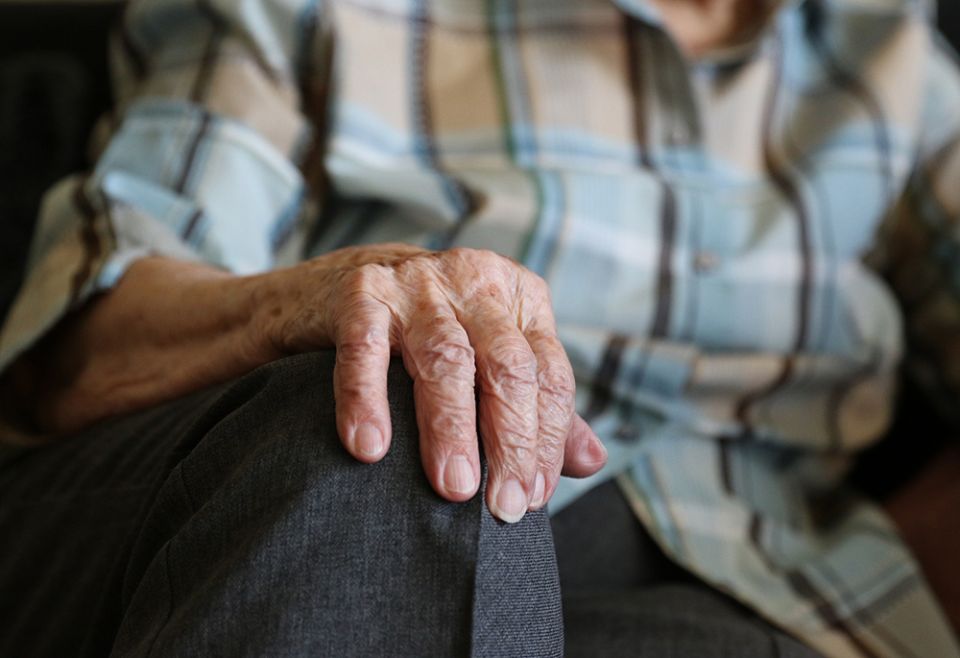The COVID-19 pandemic — and its undeniable impact on people and on our societies at different levels — gave the lie to the idea that science is almighty, putting in evidence and underlining our temporality and weaknesses, despite 21st-century sophisticated advances in science and technology. We became aware that, although knowledge and science give us some power over nature, we are not almighty after all.
We continue to be vulnerable and limited — and life, as well as death, continues to escape our absolute control. And when we stop and face our vulnerability and impotence, we also become aware that we have difficulty in accepting it and dealing with our frail nature. The pandemic crisis, that gradually we seem to be overcoming, is giving place to deep and serious reflection on our frailty and on our contemporary way of living.
We are essentially frail. Together with our strengths and best potentialities, we are also weak, incomplete, limited and "being-towards-death" in the terminology of Martin Heidegger. Our human condition is not only biologically frail, but also intellectually, morally and spiritually frail. Even so, Christian faith and hope can foresee a positive side of frailty.
We believe that frailty expresses our dependency of God and, simultaneously, it is the pathway he uses to come towards us. St. Paul states that "when I am weak, then I am strong" (2 Corinthians 12:10), because God chose to incarnate our fragile human condition and redeem it, and it is in our frailty that he shows the greatness of his mercy and the power of his grace. But this statement should be deeply understood.
One aspect — pointed out by the ex-prior of the Community of Bose, Luciano Manicardi, in a small book entitled Fragilità — should be considered: "In fact, no praise is possible about frailty: what praise can be given when a love relationship or a friendship vanishes or dies, maybe giving place to hate or anger? What praise can be given when frailty crushes a person, leading to suicide? What praise can be given when pain drives a person to madness?"
And I could continue with examples: What praise can be given to the frailty of fear, insecurity, ignorance, extreme disadvantage or necessity that bursts into various types and levels of violence, giving place, in turn, to traumatized lives and wounded consciences, that become fetid and fester, developing the desire for revenge, domination and destruction?
Advertisement
Advertisement
Isn't war — as the devastating war happening in Ukraine, but also the wars and violence happening in Nigeria, Congo, in the north of Mozambique, and Myanmar — an extreme and dramatic, not to say, tragic expression of human frailty, when we are incapable or unwilling to see and overcome the insanity of violence for our own profit?
Frail enough to break and frail enough to retaliate with more violence and destruction. Too many times frailties give place to fractures, with devastating, traumatic and dehumanizing consequences.
In face of scenes like these, perhaps a question might emerge from the depth of our astonishment: "What can save us?" What can make us transcend our own congenital frailty and the tendency it manifests towards death in such dramatic proportions?
In his novel, The Idiot, Fyodor Dostoyevsky, gives us a clue: "Beauty will save the world." "What beauty will save the world?" asks Ippolit. Dostoevsky answers the nihilist's question with the silent merciful gesture of Prince Myshkin, who stays compassionately by the young man, accompanying him in his last hours of agony. With his silence he seems to say that the beauty that can save and help transcend our frailties is the goodness of love, that shares the other person's pain.
The Greek word for beauty is kalos, meaning simultaneously beauty and goodness. The beauty to which Dostoyevsky refers is the one that shines as an excess of gratuitous love, an overflow of benevolence and mercy. This saving beauty is the kalos that radiates from the death and resurrection of Christ. The light of that same beauty was welcomed by Mary in anticipation — she let it overcome the frailty of her lowliness, her fear and her narrow circumstances. It sustained her from despair and revolt before situations she didn't understand, kept her from losing hope in face of suffering and death.
Also in the harsh situations of today, the gratuity of beauty and love can open paths to transcend the vertigo of human frailty and minimize its cruel effects. It can lead us to answer with silence instead of aggression before that which we do not understand. With the openness to listen instead of judging, it can give us the clear vision to pray the words of Domenico Battaglia, Archbishop of Naples:
Forgive us for war, O Lord / … Forgive us, if we continue to justify cruelty with our labours, if we legitimize the brutality of our actions with our pain. / Forgive us for war, O Lord. Forgive us for war, O Lord. / Lord Jesus Christ, Son of God, we implore You! Hold fast the hand of Cain! / Illumine our consciences. / May our will not be done. / Abandon us not to our own actions!
From this kalos comes the creative strength to "make all things new" (Revelation 21:5). Amen.
Like what you're reading? Sign up for GSR e-newsletters!



